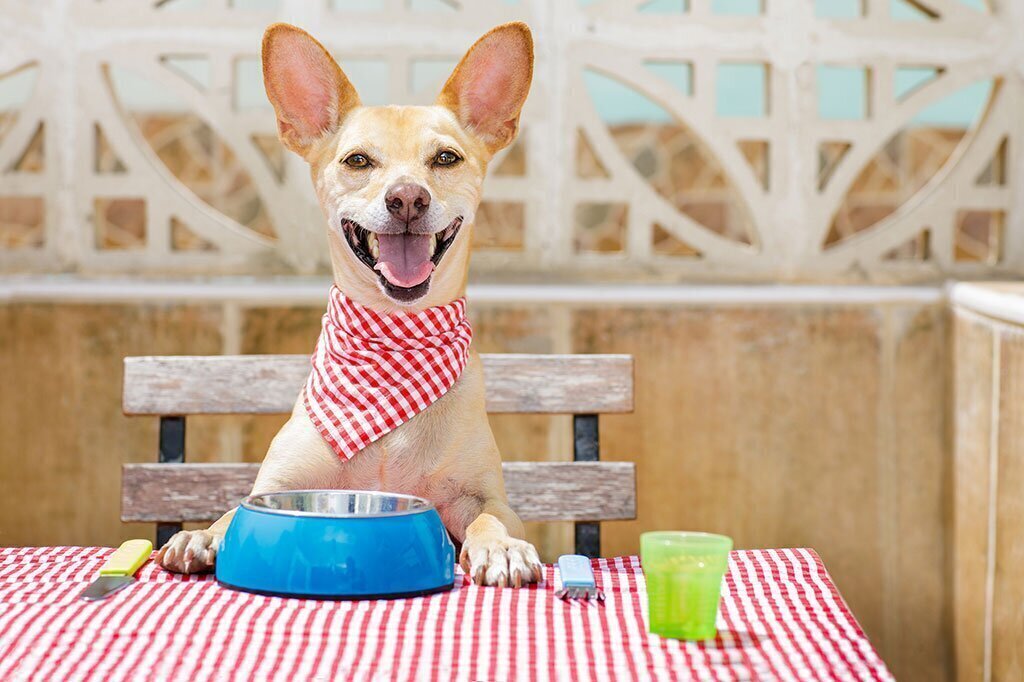Finding a Kennel You Can Count On
Last updated November 2025

Fortunately, kennels have shifted away from isolating animals and toward pet resorts of sorts. Instead of dreary, prison-like facilities, pooches often hang out in communal play areas; owners can even watch their pets sleep and cavort via kennel cams.
Unfortunately, our evaluations of local boarding facilities found that many kennels charge four-star prices for lousy stays and punish their clients with ridiculous fees for extras. The true costs of stays are often hidden until it’s time to pay up. But our ratings turn up high-quality animal houses that charge reasonable fees. Here’s our guide to finding a top-quality kennel at a reasonable price.
Customer Reviews
Our Ratings Tables report results from our surveys of area consumers for their ratings of kennels they’ve used. (We regularly survey Consumers’ Checkbook subscribers plus other randomly selected individuals in the area whom we invite to participate.) Our Ratings Tables show results for businesses for which we received 10 or more ratings.
Though the surveys asked consumers to rate kennels for dog care, owners of cats and other pets may also find the data useful. As you can see, there is substantial variation in scores.
Although pet owners can’t know what a kennel is really like when they’re not around, many pet owners inspect the kennels before they use them—everyone should—and most are aware of the condition of their dogs before and after boarding.
Complaint Histories
Our Ratings Tables also show counts of complaints we gathered from the Better Business Bureau (BBB) for a recent three-year period and the number of complaints on file with the Consumer Protection Division of the Illinois Office of the Attorney General for a recent two-year period.
Check on Costs
Consumers’ Checkbook’s undercover shoppers contacted each facility listed on our Ratings Tables and asked for per-day prices to board four different sizes of dogs, a pair of medium-size dogs boarded in the same run, and a cat.
The are substantial price differences among kennels. For example, we found that boarding a 35-pound springer spaniel for a week would cost from less than $300 to more than $500, depending on the kennel you choose.
There’s no correlation between quality and price. Some of the lower-priced kennels received highly favorable ratings from their surveyed customers.
Some kennels charge more per day as dogs get larger, but at other kennels size matters less. Cats are generally less expensive than even the smallest dogs.
Also ask about check-in and check-out times. Some kennels charge for only one day if you check in your pet in the morning of the first day and check out the afternoon of the second day. Others charge for two days if you check in before noon or check out after noon, even for just a one-night stay.
Determine when the kennel is open for drop-off and pickup. A common complaint is that facilities don’t have convenient drop-off or pickup hours, particularly on weekends. If the kennel is closed on Sundays, for example, you’d have to pay for a Sunday-night stay, even though you are back in town—and ready to retrieve your golden retriever—on Sunday morning. Or it might charge a special fee for staff to meet you at the kennel for a pickup outside regular hours.
Finally, check facilities’ prices for various services such as special exercise or administering medicine. These tasks are free at many kennels, although some charge $15 or more per day for 15 minutes of individual attention.
Facilities and Policies
Our researchers found that many kennels use marketing lingo and add-on options to make their facilities seem captivating. But don’t get so distracted by resort-like descriptions that you fail to spot basic problems. Before booking, personally inspect any facility you are considering, and ask questions. Here’s what to look for:
Openness
Can you take a complete tour? You’ll learn what a kennel is really like if you can inspect the entire facility. Some kennels insist that letting strangers walk their spaces needlessly agitates the dogs, but we believe that’s a price worth paying for openness.
Are there webcams? Most kennels now have them, allowing owners to check in on their pets.
Facilities
Where will your dog stay? Kennels offer a variety of arrangements. During the day or scheduled hours, pets usually hang out in common play areas. At night, animals are secured in their own rooms, runs, or crates. When left on their own, pets should have private digs.
Kennels that have common nighttime runs and spaces—mostly hospitals and clinics with limited space—usually rate considerably lower than facilities with separate ones.
What if my dog doesn’t get along with others? Some facilities charge extra fees if your pooch can’t participate in group play.
Are the runs and stalls large enough? Runs should be long enough for dogs to break into short gallops and wide enough for them to wag their tails without hitting the sides. Four feet by 10 feet is probably adequate for a medium-size dog, but a large dog may need a longer run. Stalls should be large enough for a pooch to move around comfortably. Cats, which exercise isometrically (by stretching), don’t need runs. A 2x3x3-foot cage is sufficient, though bigger is better.
Does each dog have a dry, comfortable bedding area? Resting boards give dogs places to lie down off concrete or tile. A sleeping box with bedding will enhance comfort and warmth.
Does every cat cage have a perch for the cat to sit on? While cats are generally easier to accommodate than dogs, this feature is a must.
Is there a play area for cats? This feature is a plus for active cats that would enjoy additional space.
Is there a solid barrier between each cage? Concrete or other solid barriers 18 inches or so high between the stalls give dogs a little privacy and prevent them from urinating into each other’s cages.
Does the kennel maintain appropriate temperatures?
Does the kennel have good ventilation? Canine cough and other illnesses are spread by airborne viruses. A kennel’s ventilation system should provide an air exchange every five minutes or so. This is especially important for cats, which are susceptible to serious respiratory diseases.
Will your cat be separated from dogs? Dog kennels can be extremely noisy, and may traumatize a cat unaccustomed to the constant barking.
Is the kennel adequately lighted? Your pet should get artificial or natural light for at least 10 to 12 hours per day.
Is the kennel’s fencing adequate? If the kennel offers outdoor areas, fencing should be solid enough and high enough to prevent dogs from escaping.
Does the kennel have a central-reporting fire alarm system and working smoke detectors?

Health Screening and Prevention
Does the kennel require proof of vaccinations? Animals are much more likely to get sick in kennels than at home. A kennel that requires appropriate vaccinations forces you to take the proper steps to protect your pet and reduces the chances that other kennel residents are diseased. Dogs should have the following vaccinations: DHLPP (canine distemper, hepatitis, leptospirosis, parainfluenza, and parvovirus), rabies, and bordetella (canine cough). Cats should have FVRCP (feline distemper and upper respiratory diseases) and rabies vaccinations. Your veterinarian may wish to vaccinate for other transmissible diseases (e.g., feline leukemia), so ask before boarding.
Are animals carefully examined at check-in? Kennel staff should examine each animal’s eyes, ears, mouth, genitals, anal area, skin, and coat to detect any disease or parasites.
Does the kennel have an isolation room? Although a kennel should refer serious medical problems to a veterinarian, it should have an isolation room for sick animals that is completely separate from the area where the other animals are housed, with solid walls and doors and its own ventilation system.
Is the kennel clean? Cleanliness is critical to your pet’s health. Carefully inspect the kennel’s floors, walls, and fences. Also, be sure that water and disinfectant have not formed puddles. Take a good look each time you drop off or pick up your pet.
How does the kennel smell? Kennels should not smell foul. A whiff of disinfectant is fine, but a strong disinfectant smell might be masking other odors.
Is bedding washed daily, or whenever it becomes soiled?
Is the facility in good repair? Jagged pieces of caging and other flaws may be dangerous.
Care and Comfort
What food options are available? Can you provide your own?
How flexible is the kennel about its feeding schedule? Most kennels feed dogs only once a day, but some older dogs should eat twice a day. If your dog is on a twice-a-day schedule, find out whether the kennel will accommodate it.
Is clean water always available to each animal?
Is some form of bedding provided to each dog?
Can you bring your pet’s toys and bedding? Most kennels will allow this, but it does pose sanitation problems and requires extra effort on the kennel’s part. Most kennels won’t guarantee that you’ll get back what you bring, so don’t bring more than necessary.
Will the kennel give your dog extra individualized attention or exercise by special arrangement? Most offer this service, usually for an additional fee.
If the facility’s runs don’t have outdoor access, when are dogs let out to relieve themselves? Some kennels let dogs out first thing in the morning, a few times during the day, and then one last time before closing, perhaps as early as 6 p.m. This means dogs can’t go outdoors for 12 hours or longer. If your dog requires more frequent outdoor access, particularly during evenings, ask if arrangements can be made—and at what times extra breaks can be scheduled.
Will the kennel administer shots and pills? All of the kennels we surveyed will administer pills, though some charge extra for it. Many will administer shots.
Staffing
Are staffers affectionate with the animals? Most kennel staffers like animals, but be sure.
Is the staff experienced and well-informed? Check how long the kennel has been in business under the same management. Note how staff responds to questions.
What are the arrangements for veterinary care, if necessary? If you have a regular vet, check whether the kennel will use them. Expect to pay for transportation and vet fees.
Is a staff member on the premises 24 hours a day? If not, how does the kennel ensure the welfare and comfort of pets through the night?
Miscellaneous
Do the animals seem happy?
Are grooming and other services available? Here at Checkbook.org you’ll find reviews of dog groomers.


